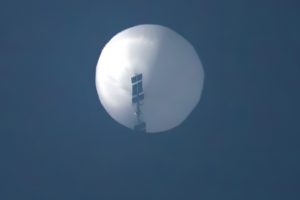In 1865, a group of around 153 people from across Wales set off from Liverpool on board the tea clipper Mimosa to start a new life in Patagonia. This week, the Welsh community in Argentina will celebrate 150 years since its ancestors arrived, seeking a new life.
However, what should be an occasion marked with celebration has instead ignited old debates regarding Anglo-Argentine relations. The islands have been invaded and fought over, leading to hundreds of deaths. So how do you resolve the arguments between the UK and Argentina over the elephant in the room: The Falklands? This is where Wales (seemingly) appears to be a viable answer. Yet things couldnÔÇÖt have gotten off to a worse start…
WalesÔÇÖs First Minister Carwyn Jones was advised to distance himself from ÔÇÿdistastefulÔÇÖ comments over the Falkland IslandsÔÇÖ sovereignty earlier this year when the Welsh leader, Argentine ambassador in the UK, Alicia Castro, and Chubut governor Martin Buzzi, met to celebrate the anniversary.
Argentine ambassador Castro and Governor Buzzi were part of the delegation from the province of Chubut visiting Wales. Ms Castro claimed the Welsh settlersÔÇÖ integration refuted ÔÇÿpropagandaÔÇÖ of ArgentinaÔÇÖs hostility towards British descendants ÔÇ£as claimed by a sector of Malvinas Islands inhabitantsÔÇØ.
Both parties have promised to work jointly to organize the 2015 celebrations, with Ambassador Castro praising the integration of the Welsh community in Argentina as an example of the hospitality that Argentina extends to the British.
However Andrew RT Davies, leader of the Welsh Conservatives, called on the First Minister to make his position over the Falkland Islands clear. ÔÇ£I would expect the Welsh government to have seen this statement prior to its release. If so, it is extremely na├»ve for the First Minister to allow himself to be used as a pawn in this dispute and an explanation is swiftly required.ÔÇØ
With support from the Welsh Government, the British Council has set up an advisory group consisting of various organisations which are planning a series of activities to mark the milestone.
The collaboration includes the development of the British Council Wales Patagonia 150 website, a social media campaign and the launch of the Welsh Government funded online package of curriculum material. ThatÔÇÖs not all, with an even more cordial attempt being made in March 2014, as nine members of ParliamentÔÇÖs Welsh Affairs Committee flew to Buenos Aires for a six-day visit. Their ultimate destination was, of course, Patagonia, with Committee chair David Davies explaining ÔÇ£We were invited by the Argentine government to come and visit. The Foreign Office were keen for us to go and visit because of, frankly, a lack of very friendly communication between the two countries for a number of years now.ÔÇØ
ÔÇ£The visit will lead, hopefully, to a slight thaw perhaps in the relationship between the UK and Argentina.
ÔÇ£They are potentially a huge trading partner for us and I hope we learn something about how Wales is marketed because I donÔÇÖt feel thatÔÇÖs been done as well as Scotland or even some regions of England and if we can do anything that improves the way that Wales is marketed then that could be very good for our tourism industry.ÔÇØ
Despite this somewhat rocky patch in the relationship, nothing can deny the bond of history between Wales and Argentina. However, the rest of the United Kingdom also has something of a history with the South Americans. Yet because of our creation of a Welsh community that continues even today, this opportunity for parity cannot be wasted because of these disagreements, as a strong relationship will benefit each party.








Add Comment